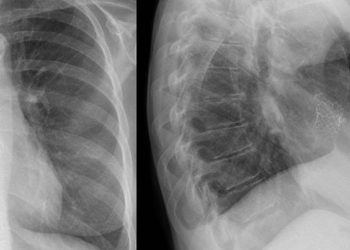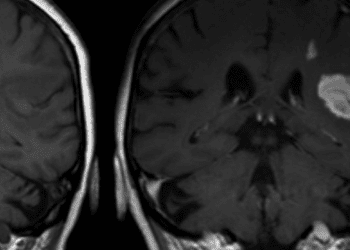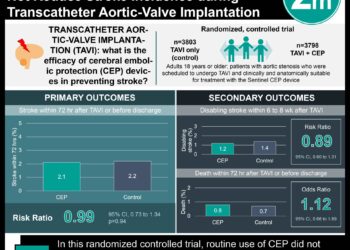New post-stroke management program significantly reduces cardiovascular events and improves quality of life
1. Cardiovascular events were significantly lower with a novel post-stroke management program compared to current standard care.
2. Post-stroke patients reported significantly better health-related quality of life in with a novel post-stroke management program compared to those receiving standard of care.
Evidence Rating Level: 1 (Excellent)
Study Rundown: Strokes, including transient ischemic attacks (TIAs) and ischemic strokes, comprise one of the leading causes of death and disability worldwide. Despite this large burden of disease and the advancements made in acute stroke care, the long-term management of post-stroke patients generally remains poor. Post-stroke complication rates are high, and these patients are at elevated risk for subsequent strokes and other cardiovascular diseases. This open-label randomized control trial compared a novel post-stroke disease management program, STROKE-CARD, with current standard care. In addition to including standard care (i.e. in-hospital counselling, dietary advice, programs to stop smoking, discharge reports, etc.), STROKE-CARD added an outpatient meeting three months post-event with a multidisciplinary team including stroke physicians, physiotherapists, as well as occupational and speech therapists. Overall, at 12 months of follow-up post-event, patients in the STROKE-CARD group had significantly fewer cardiovascular events and reported a higher health-related quality of life score compared with standard post-stroke care. STROKE-CARD patients were less likely to have concerns with functional or mental health; they also achieved functional independence at 12 months at a higher rate than in the standard care group. A strength of this study was that it focused on an improvement in the organization of care rather than changing patient behavior. Important limitations include that it was only conducted at highly-developed stroke-care centers, as well as a single time-point follow-up at 12 month; the longevity of the benefits from STROKE-CARD remain unclear.
Click to read the study in EClinical Medicine
In-Depth [randomized controlled trial]: This open-label blinded randomized controlled trial was conducted in two hospitals in Vienna, and randomized 2149 participants in a 2:1 STROKE-CARD:standard care ratio. Participants were over 18 years of age and had been previously hospitalized due to an ischemic stroke (defined by American Heart Association Criteria) or transient ischemic attack (TIA) based on an ABCD2 score > 3. Exclusion criteria included life expectancy under 1 year due to severe disease, modified Rankin Scale above 5, and residence outside the defined area. The average age of participants was 69 years (standard deviation [SD] 14), with 41% being women; 1791 (84%) of patients had suffered an acute ischemic stroke, and 358 (17%) had a TIA. There were two primary outcomes: (i) major non-fatal cardiovascular events and vascular death at 12 months from time of discharge; and (ii) health-related quality of life at 12 months from time of discharge, based on the EuroQol-5-Dimensions-3-Levels [EQ-5D-3L] score. At 12 months, the STROKE-CARD group had significantly less cardiovascular events than the standard care group (hazard ratio [HR] for cardiovascular disease 0.63, 95% CI 0.45 to 0.88, p=0.007). They also had a significantly higher EQ-5D-3L score (STROKE-CARD: median 0.783, IQR 0.687 to 1.000 vs. standard care: 0.779, IQR 0.573 to 1.000; p < 0.001). The secondary outcome of functional independence at 12 months was achieved by significantly more patients in the STROKE-CARD group (relative risk [RR] 1.07; 95% CI 1.02 to 1.12, p=0.006). Based on these findings, the STROKE-CARD disease management program offers a promising post-stroke treatment plan that implements changes in organization of care with reliable effects at 1 year post-hospital discharge.
Image: PD
©2020 2 Minute Medicine, Inc. All rights reserved. No works may be reproduced without expressed written consent from 2 Minute Medicine, Inc. Inquire about licensing here. No article should be construed as medical advice and is not intended as such by the authors or by 2 Minute Medicine, Inc.







